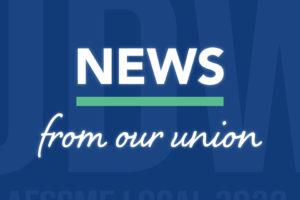
Paid sick leave for IHSS providers starts July 1
Although nearly all California workers already get paid time off when they are sick, this basic right has long been


Although nearly all California workers already get paid time off when they are sick, this basic right has long been
CLICK HERE FOR A LIST OF UPCOMING WEBINARS ON PAID SICK LEAVE. In 2016, UDW caregivers helped secure a historic
UDW caregivers started 2016 off with a bang. In fact, we made history. Overtime pay On February 1st, for the
All across this state—from the streets of San Diego to the legislative chambers of Sacramento—home care workers have made our

FOR IMMEDIATE RELEASE Monday, March 28, 2016 Contact: Eli Magaña, emagana@udw.org, 619-252-0397 Statement from UDW Executive Director Doug Moore on